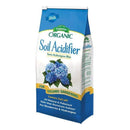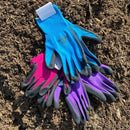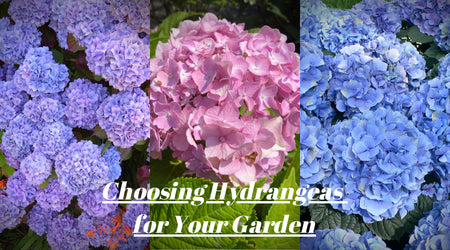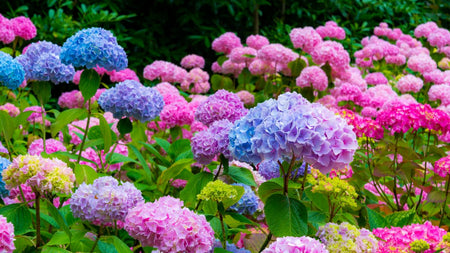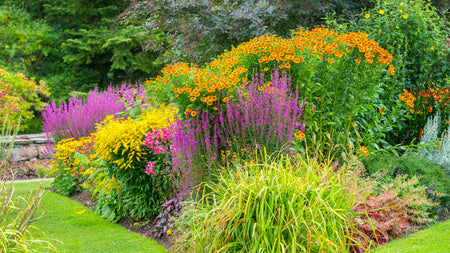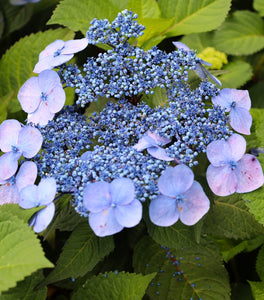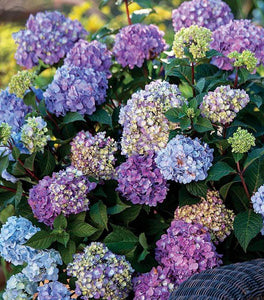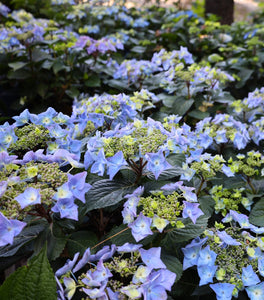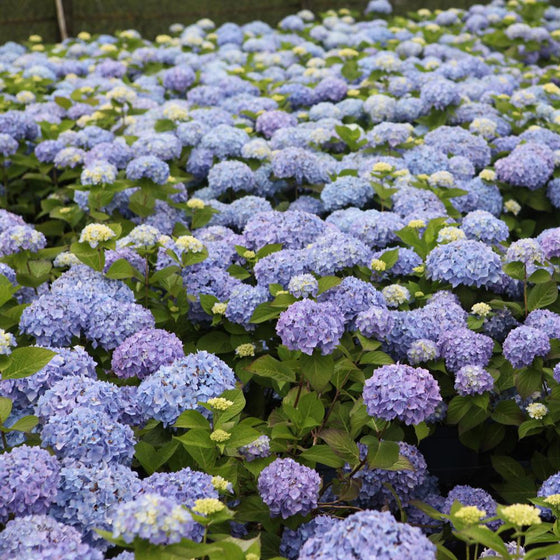
Images Depict Mature Plants
Endless Summer® Hydrangea – Reblooming Blue or Pink Hydrangea for Season-Long Color
The hydrangea that never stops blooming.
The Endless Summer® Hydrangea is a true breakthrough in flowering shrubs — the first bigleaf hydrangea to rebloom on both old and new wood. This means you’ll enjoy continuous waves of color from early summer until frost. With its signature mophead blooms in shades of pink, blue, or purple, this shrub transforms any landscape into a lush, cottage-style retreat.
Vibrant flower color that you control.
Endless Summer® gives you the power to choose your color palette. In acidic soils, the blooms turn rich blue, while alkaline soils produce rosy pink blossoms. Neutral soil often results in beautiful lavender tones. With a bit of soil amendment, you can adjust your garden’s hue to suit your aesthetic — an irresistible feature for hydrangea lovers who crave versatility.
Tough, hardy, and reliable.
Unlike traditional bigleaf hydrangeas, Endless Summer® is cold-hardy down to Zone 4, meaning gardeners across the U.S. can rely on consistent blooms year after year. Its ability to flower on both new and old growth ensures that even late frosts won’t stop it from producing massive blooms. Perfect for partial shade to full sun, it thrives in borders, containers, and as a showpiece foundation shrub.
Endless blooms, Endless Beauty.
Compact yet lush, Endless Summer® grows to about 3–5 feet tall and wide, making it easy to integrate into any garden design. Whether you’re framing an entryway, filling a shady corner, or brightening your patio, this hydrangea offers season-long performance, color, and reliability — a truly timeless favorite for both home gardeners and professionals.
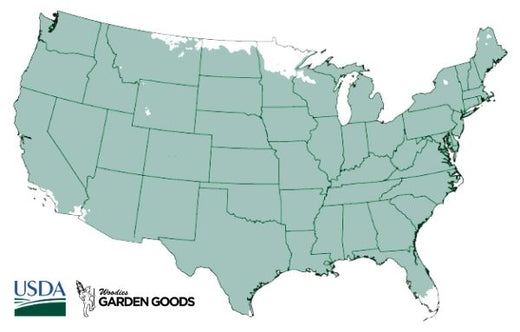
| Hardiness Zone: | 4-9 |
|---|---|
| Mature Height: | 3 to 4 feet |
| Mature Width: | 3 to 4 feet |
| Classification: | Broad leaved deciduous shrub, summer flowering |
| Sunlight: | Full to partial shade |
| Habit: | Upright, densely branched |
| Foliage: | Dark green |
| Flower Color: | Blue in acid soil; pink in alkaline soil |
| Pruning Season: | Prune in late winter, flowers on new wood |
| Soil Condition: | Any well drained soil |
| Water Requirements: | Water well until established |
| Uses: | Extremely attractive when used as a focal point in the mixed border, mass planting, or a specimen planting |
How to Care for Endless Summer® Hydrangea
Be sure to read our planting instructions to ensure a healthy and happy Endless Summer® Hydrangea for years to come!
How should I plant my Endless Summer Hydrangea?
Plant your Endless Summer Hydrangea in well-drained, fertile soil enriched with organic matter such as compost. Choose a location with morning sun and afternoon shade, especially in warmer regions. Dig a hole twice as wide as the root ball but no deeper, place the plant at ground level, and backfill gently. Water deeply after planting, and apply a 2–3 inch layer of mulch to conserve moisture and regulate temperature. Hydrangeas prefer slightly moist, humus-rich soil. Avoid areas with standing water or overly dry ground. The ideal planting seasons are spring and fall, giving roots time to establish before temperature extremes.
How often should I water Endless Summer Hydrangea?
Keep the soil consistently moist, especially during the first growing season. Endless Summer® Hydrangea appreciates deep watering once or twice a week rather than light, frequent watering. In hot climates, increase watering during summer heat waves to prevent leaf wilt. Adding mulch helps retain soil moisture and prevent drying out between rains. Always water at the soil line, not the foliage, to reduce the chance of leaf spot or fungal disease.
How do I fertilize Endless Summer Hydrangea?
Fertilize in early spring as new growth appears with a balanced, slow-release fertilizer (10-10-10). Avoid high-nitrogen formulas, which promote leafy growth but fewer blooms. A second light feeding in mid-summer can enhance reblooming performance. If you want to adjust bloom color, use soil additives: aluminum sulfate for blue flowers or garden lime for pink flowers. Follow package instructions carefully to maintain healthy soil balance while achieving your desired hue.

When and how should I prune Endless Summer Hydrangea?
Prune lightly in late winter or early spring, removing dead wood and weak stems. Since this hydrangea blooms on both old and new wood, avoid heavy pruning — it can reduce flowering. Simply trim back spent flower heads after the first bloom cycle to encourage additional blooms later in the season. In colder regions, wait until spring to remove winter damage to ensure new growth from the base is protected. Regular pruning maintenance keeps the shrub dense, tidy, and bursting with blooms year after year.










